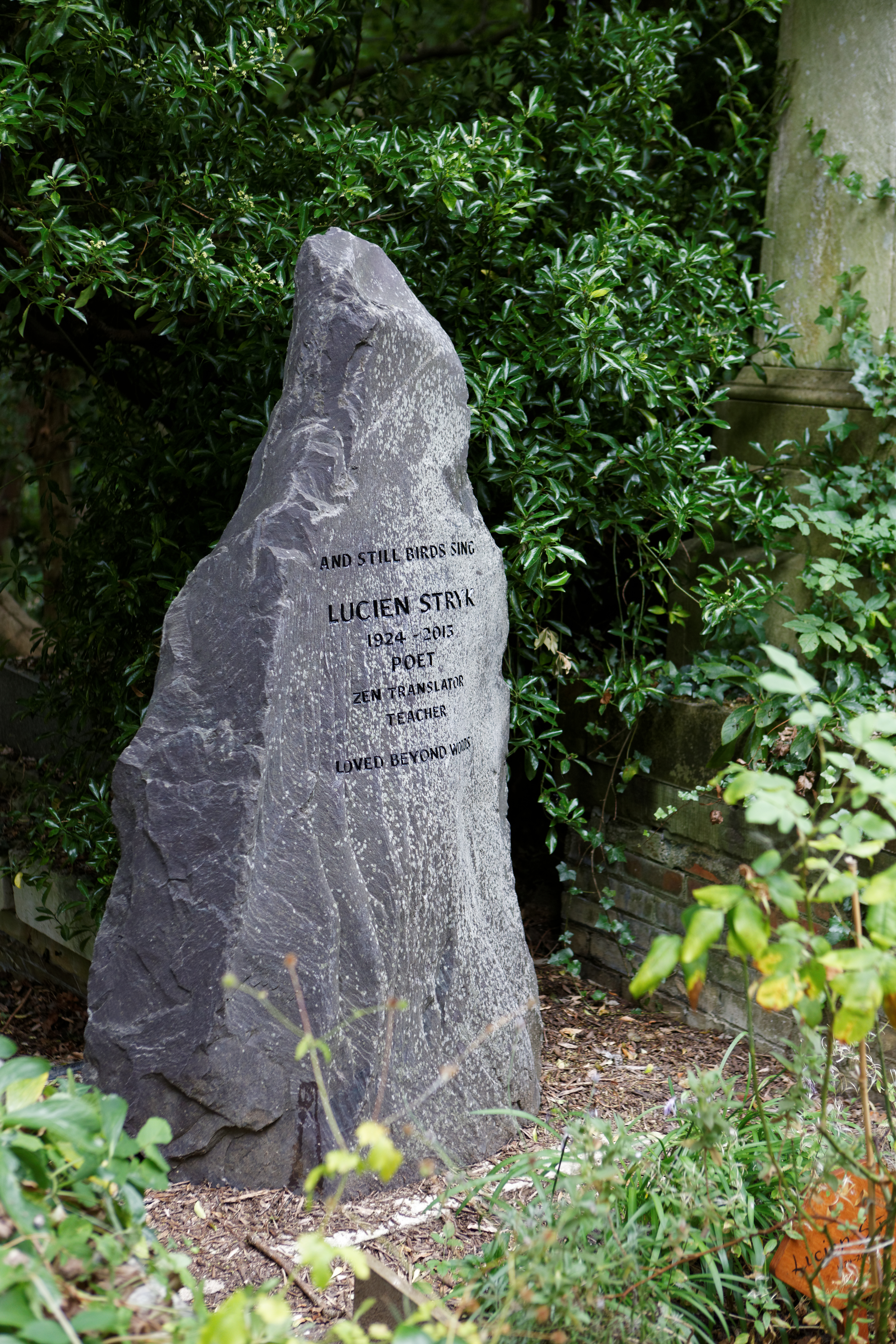|
Shinkichi Takahashi
was a Japanese poet. He was one of the pioneers of Dadaism in Japan. According to Makoto Ueda, he is also the only major Zen poet of modern Japanese literature.Makoto Ueda ''Modern Japanese Poets and the Nature of Literature'' p.335 Stanford University Press, 1983 He was born on Shikoku. His ''Collected Poems'' won the Japanese Ministry of Education An education ministry is a national or subnational government agency politically responsible for education. Various other names are commonly used to identify such agencies, such as Ministry of Education, Department of Education, and Ministry of Pub ... Prize for Art.''Zen Poetry: Let the Spring Breeze Enter'' edited by Lucien Stryk and Takashi Ikemoto. Grove Press, 1977 Works *''Dadaist Shinkichi's Poetry'' 1923 *''Triumph of the Sparrow: Zen Poems of Shinkichi Takahashi'' Translated by Lucien Stryk and Takashi Ikemoto. Grove Press, 2000 *''After Images: Zen Poems by Shinkichi Takahashi'' Translated by Lucien Stryk and Takashi Ik ... [...More Info...] [...Related Items...] OR: [Wikipedia] [Google] [Baidu] |
Dadaism
Dada () or Dadaism was an art movement of the European avant-garde in the early 20th century, with early centres in Zürich, Switzerland, at the Cabaret Voltaire (in 1916). New York Dada began c. 1915, and after 1920 Dada flourished in Paris. Dadaist activities lasted until the mid 1920s. Developed in reaction to World War I, the Dada movement consisted of artists who rejected the logic, reason, and aestheticism of modern capitalist society, instead expressing nonsense, irrationality, and anti-bourgeois protest in their works. The art of the movement spanned visual, literary, and sound media, including collage, sound poetry, cut-up writing, and sculpture. Dadaist artists expressed their discontent toward violence, war, and nationalism, and maintained political affinities with radical left-wing and far-left politics. There is no consensus on the origin of the movement's name; a common story is that the German artist Richard Huelsenbeck slid a paper knife (letter-opener) at ... [...More Info...] [...Related Items...] OR: [Wikipedia] [Google] [Baidu] |
Makoto Ueda (poetry Critic)
was a professor emeritus of Japanese literature at Stanford University. Education and career He earned a Ph.D. in comparative literature in 1961. In 2004–2005 he served as the honorary curator of the American Haiku Archives at the California State Library in Sacramento, California. He was given that honor "in recognition of Ueda’s many decades of academic writing about haiku and related genres and his leading translations of Japanese haiku." The library added that "Ueda has been our most consistently useful source for information on Japanese haiku, as well as our finest source for the poems in translation, from Bashô to the present day." His work on female poets and 20th century poets "had an enormous impact". Bibliography He is an author of numerous books about Japanese literature and in particular Haiku, Senryū, Tanka, and Japanese poetics. *''The Old Pine Tree'' (1962) *''Literary and Art Theories in Japan'' (1967) *''Matsuo Bashō: The Master Haiku Poet'' (1970) *''Mod ... [...More Info...] [...Related Items...] OR: [Wikipedia] [Google] [Baidu] |
Japanese Literature
Japanese literature throughout most of its history has been influenced by cultural contact with neighboring Asian literatures, most notably China and its literature. Early texts were often written in pure Classical Chinese or , a Chinese-Japanese creole language. Indian literature also had an influence through the spread of Buddhism in Japan. During the Heian period, Japan's original culture () developed and literature also established its own style, with the significant usage and development of to write Japanese literature. Following the Perry Expedition which led to the end of the policy and the forced reopening of foreign trade, Western literature has also made influences to the development of modern Japanese writers, while Japanese literature has in turn become more recognized internationally, leading to two Japanese Nobel laureates in literature, namely Yasunari Kawabata and Kenzaburō Ōe. History Nara-period literature (before 794) Before the introduction of kanji f ... [...More Info...] [...Related Items...] OR: [Wikipedia] [Google] [Baidu] |
Shikoku
is the smallest of the four main islands of Japan. It is long and between wide. It has a population of 3.8 million (, 3.1%). It is south of Honshu and northeast of Kyushu. Shikoku's ancient names include ''Iyo-no-futana-shima'' (), ''Iyo-shima'' (), and ''Futana-shima'' (), and its current name refers to the four former provinces that made up the island: Awa, Tosa, Sanuki, and Iyo. Geography Shikoku Island, comprising Shikoku and its surrounding islets, covers about and consists of four prefectures: Ehime, Kagawa, Kōchi, and Tokushima. Across the Seto Inland Sea lie Wakayama, Osaka, Hyōgo, Okayama, Hiroshima, and Yamaguchi Prefectures on Honshu. To the west lie Ōita and Miyazaki Prefectures on Kyushu. Shikoku is ranked as the 50th largest island by area in the world. Additionally, it is ranked as the 23rd most populated island in the world, with a population density of 193 inhabitants per square kilometre (500/sq mi). Mountains running east and west d ... [...More Info...] [...Related Items...] OR: [Wikipedia] [Google] [Baidu] |
Ministry Of Education, Culture, Sports, Science And Technology
The , also known as MEXT or Monka-shō, is one of the eleven Ministries of Japan that composes part of the executive branch of the Government of Japan. Its goal is to improve the development of Japan in relation with the international community. The ministry is responsible for funding research under its jurisdiction, some of which includes: children's health in relation to home environment, delta-sigma modulations utilizing graphs, gender equality in sciences, neutrino detection which contributes to the study of supernovas around the world, and other general research for the future. History The Meiji government created the first Ministry of Education in 1871. In January 2001, the former Ministry of Education, Science, Sports and Culture and the former merged to become the present MEXT. Organization The Ministry of Education, Culture, Sports, Science and Technology currently is led by the Minister of Education, Culture, Sports, Science and Technology. Under that position i ... [...More Info...] [...Related Items...] OR: [Wikipedia] [Google] [Baidu] |
Lucien Stryk
Lucien Stryk (April 7, 1924 - January 24, 2013) was an American poet, translator of Buddhist literature and Zen poetry, and former English professor at Northern Illinois University (NIU). Biography Stryk was born in Poland on April 7, 1924, and moved to Chicago aged four, where he spent the remainder of his childhood. He later served as a Forward Observer during World War II in the Pacific. On his return, he studied at Indiana University, and afterwards at the Sorbonne in Paris, London University, and the University of Iowa Writing Program. From 1958 until his retirement in 1991 Lucien Stryk served on the Northern Illinois University English department faculty. In 1991 NIU awarded him an honorary doctorate for his accomplishments. He also has taught at universities in Japan, and was a Fulbright lecturer both in Japan and in Iran. Stryk wrote or edited more than two dozen books. These include his own poetry, poetry anthologies and numerous translations of Chinese and Japanese ... [...More Info...] [...Related Items...] OR: [Wikipedia] [Google] [Baidu] |
Japanese Zen Buddhists
Japanese may refer to: * Something from or related to Japan, an island country in East Asia * Japanese language, spoken mainly in Japan * Japanese people, the ethnic group that identifies with Japan through ancestry or culture ** Japanese diaspora, Japanese emigrants and their descendants around the world * Japanese citizens, nationals of Japan under Japanese nationality law ** Foreign-born Japanese, naturalized citizens of Japan * Japanese writing system, consisting of kanji and kana * Japanese cuisine, the food and food culture of Japan See also * List of Japanese people * * Japonica (other) * Japonicum * Japonicus * Japanese studies Japanese studies (Japanese: ) or Japan studies (sometimes Japanology in Europe), is a sub-field of area studies or East Asian studies involved in social sciences and humanities research on Japan. It incorporates fields such as the study of Japanese ... {{disambiguation Language and nationality disambiguation pages ... [...More Info...] [...Related Items...] OR: [Wikipedia] [Google] [Baidu] |
1901 Births
Nineteen or 19 may refer to: * 19 (number), the natural number following 18 and preceding 20 * one of the years 19 BC, AD 19, 1919, 2019 Films * 19 (film), ''19'' (film), a 2001 Japanese film * Nineteen (film), ''Nineteen'' (film), a 1987 science fiction film Music * 19 (band), a Japanese pop music duo Albums * 19 (Adele album), ''19'' (Adele album), 2008 * ''19'', a 2003 album by Alsou * ''19'', a 2006 album by Evan Yo * ''19'', a 2018 album by MHD (rapper), MHD * ''19'', one half of the double album ''63/19'' by Kool A.D. * ''Number Nineteen'', a 1971 album by American jazz pianist Mal Waldron * XIX (EP), ''XIX'' (EP), a 2019 EP by 1the9 Songs * 19 (song), "19" (song), a 1985 song by British musician Paul Hardcastle. * "Nineteen", a song by Bad4Good from the 1992 album ''Refugee (Bad4Good album), Refugee'' * "Nineteen", a song by Karma to Burn from the 2001 album ''Almost Heathen''. * Nineteen (song), "Nineteen" (song), a 2007 song by American singer Billy Ray Cyrus ... [...More Info...] [...Related Items...] OR: [Wikipedia] [Google] [Baidu] |
1987 Deaths
File:1987 Events Collage.png, From top left, clockwise: The MS Herald of Free Enterprise capsizes after leaving the Port of Zeebrugge in Belgium, killing 193; Northwest Airlines Flight 255 crashes after takeoff from Detroit Metropolitan Airport, killing everyone except a little girl; The King's Cross fire kills 31 people after a fire under an escalator Flashover, flashes-over; The MV Doña Paz sinks after colliding with an oil tanker, drowning almost 4,400 passengers and crew; Typhoon Nina (1987), Typhoon Nina strikes the Philippines; LOT Polish Airlines Flight 5055 crashes outside of Warsaw, taking the lives of all aboard; The USS Stark is USS Stark incident, struck by Iraq, Iraqi Exocet missiles in the Persian Gulf; President of the United States, U.S. President Ronald Reagan gives a famous Tear down this wall!, speech, demanding that Soviet Union, Soviet leader Mikhail Gorbachev tears down the Berlin Wall., 300x300px, thumb rect 0 0 200 200 Zeebrugge disaster rect 200 0 400 200 ... [...More Info...] [...Related Items...] OR: [Wikipedia] [Google] [Baidu] |
Dada
Dada () or Dadaism was an art movement of the European avant-garde in the early 20th century, with early centres in Zürich, Switzerland, at the Cabaret Voltaire (Zurich), Cabaret Voltaire (in 1916). New York Dada began c. 1915, and after 1920 Dada flourished in Paris. Dadaist activities lasted until the mid 1920s. Developed in reaction to World War I, the Dada movement consisted of artists who rejected the logic, reason, and aestheticism of modern capitalist society, instead expressing nonsense, irrationality, and anti-bourgeois protest in their works. The art of the movement spanned visual, literary, and sound media, including collage, sound poetry, cut-up technique, cut-up writing, and sculpture. Dadaist artists expressed their discontent toward violence, war, and nationalism, and maintained political affinities with Radical politics, radical left-wing and far-left politics. There is no consensus on the origin of the movement's name; a common story is that the German artis ... [...More Info...] [...Related Items...] OR: [Wikipedia] [Google] [Baidu] |





